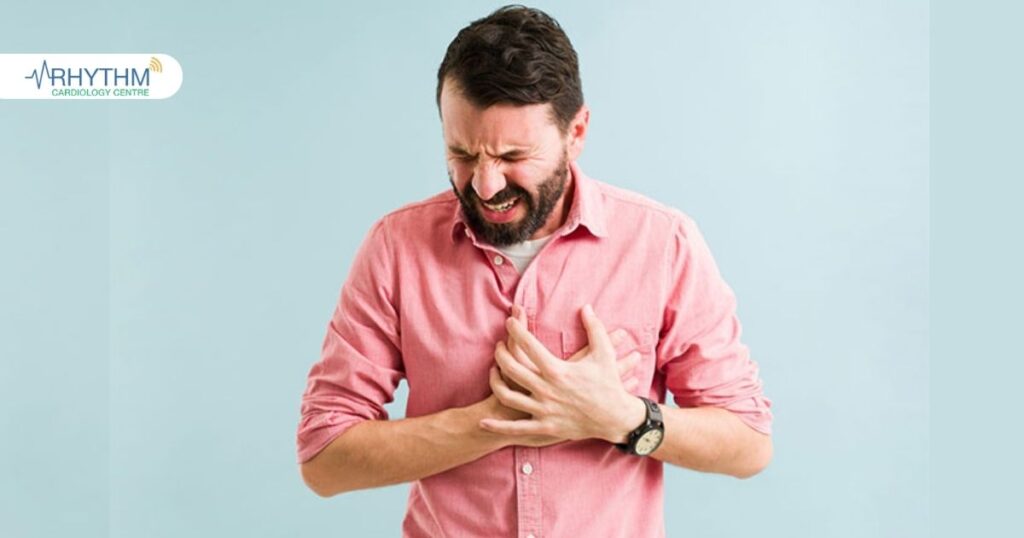Increasing Cases of Cardiac Arrest - Heart Surgeon in Indore
Increasing Cases Of Cardiac Arrest
The heart is the center of all life, providing us with the vital energy we need to survive. Unfortunately, sedentary lifestyles have contributed to an increase in heart conditions globally, including the serious and potentially fatal issue of sudden cardiac arrest.
Time is crucial in sudden cardiac arrest, so it is critical to act swiftly and follow the necessary steps to address the situation. Whether you are experiencing sudden cardiac arrest or are with someone who is facing the same, quick action can make a life-saving difference.

Initial Symptoms Of Heart Attack
Dr. Siddhant Jain, Chief Interventional Cardiologist, and Director, of Cardiac Sciences, at Shalby Hospitals Indore, says, “Uncomfortable pressure, squeezing, fullness or discomfort are warning signs of an oncoming heart attack. A warning indicator would be chest pain that feels like pressure and lasts more than 10 minutes.
One such symptom to watch out for is discomfort in various parts of the upper body. Pain or discomfort in one or both arms, the back, neck, jaw, or stomach are among the symptoms of cardiac arrest. One of the most common symptoms of a heart attack is shortness of breath.”
Here’s What To Do If Someone Around You Is Experiencing Heart Attack-like Symptoms:
Check The Person’s Pulse

If someone around you is breathing heavily, then first of all you should check his pulse. To check the pulse, place two fingers on the person’s wrist or neck and feel for a strong, steady throb. You can also try placing your ear to the person’s chest and listening for a heartbeat. If you cannot find a pulse or if the person is not breathing, it is important to begin cardiopulmonary resuscitation (CPR) immediately.
When To Do Cardiopulmonary Resuscitation (CPR)

“If the person is not breathing or is only gasping, you should start CPR immediately. CPR is a combination of rescue breathing and chest compressions that pump oxygen and blood to the heart and brain,” advises Indore heart specialist Dr. Siddhant Jain.
Call An Ambulance Or Take Them To The Nearest Hospital

If someone is having a sudden cardiac arrest, it is important to call an ambulance immediately. Every minute counts in this situation, as prompt medical attention can increase your chances of recovery. If an ambulance is not available or if it is too far away, you may need to drive the person to the nearest hospital yourself.
Be sure to follow the guidelines provided by your local EMS or healthcare provider for the best course of action.
Use an Automated External Defibrillator (AED)
If you have access to an AED, use it as soon as possible. An Automated External Defibrillator (AED) is a device that delivers a shock to the heart or defibrillation to try to restore a normal rhythm. It is easy to use and can be a life-saving tool in the event of sudden cardiac arrest.
Continue CPR (Cardiopulmonary Resuscitation)

Dr. Siddhant Jain says, “If the person’s heart doesn’t start beating again after you use an automated external defibrillator (AED), continue CPR until emergency medical personnel arrive. It is important to keep trying to revive the person until help arrives, as they may have a better chance of survival if CPR is started quickly and continued until medical help arrives.
Lastly and most importantly, if you witness someone experiencing sudden cardiac arrest, it is important to act quickly and take the right steps to help save their life.
Doing These Five Things Can Potentially Save A Person’s Life.
.jpg)


Comments
Post a Comment